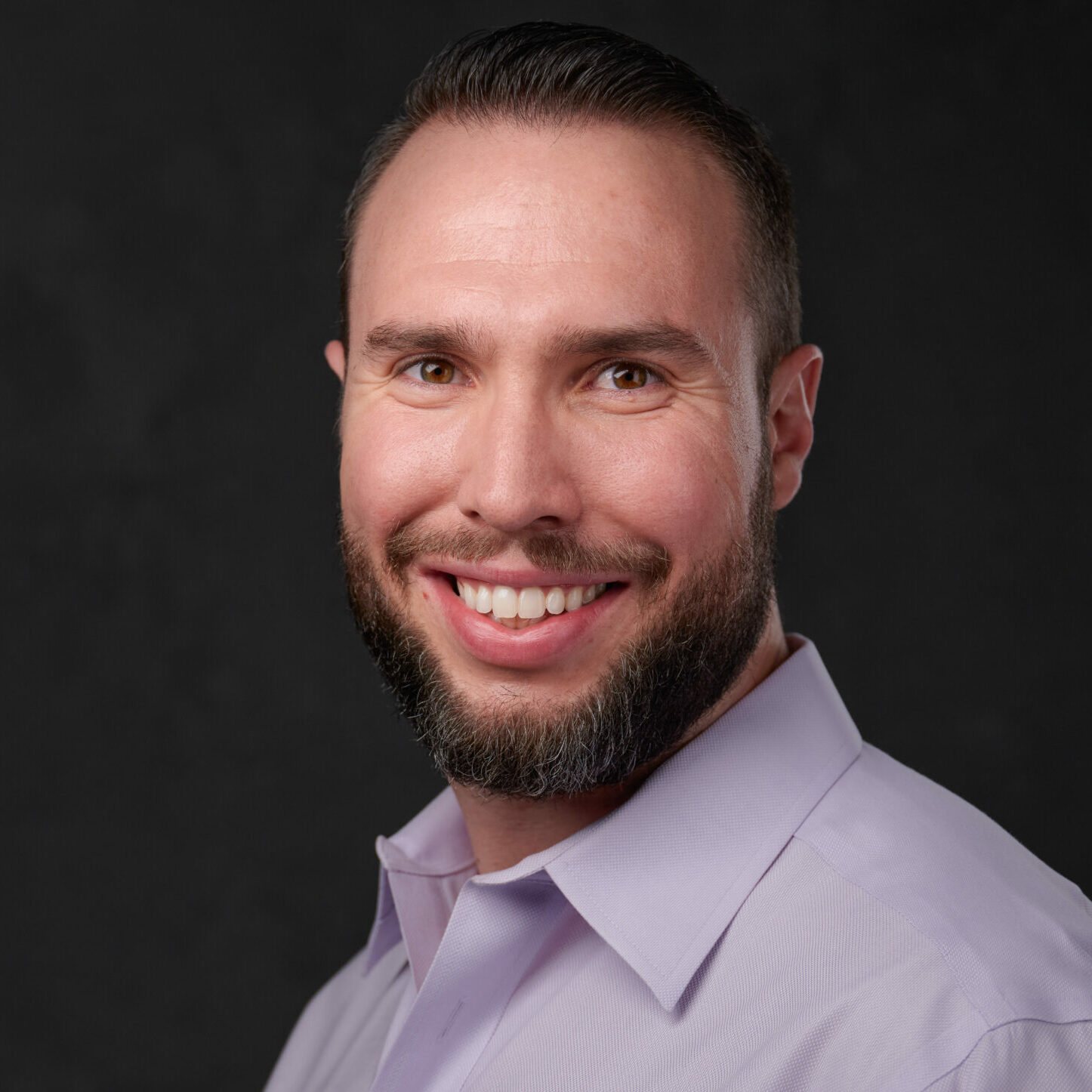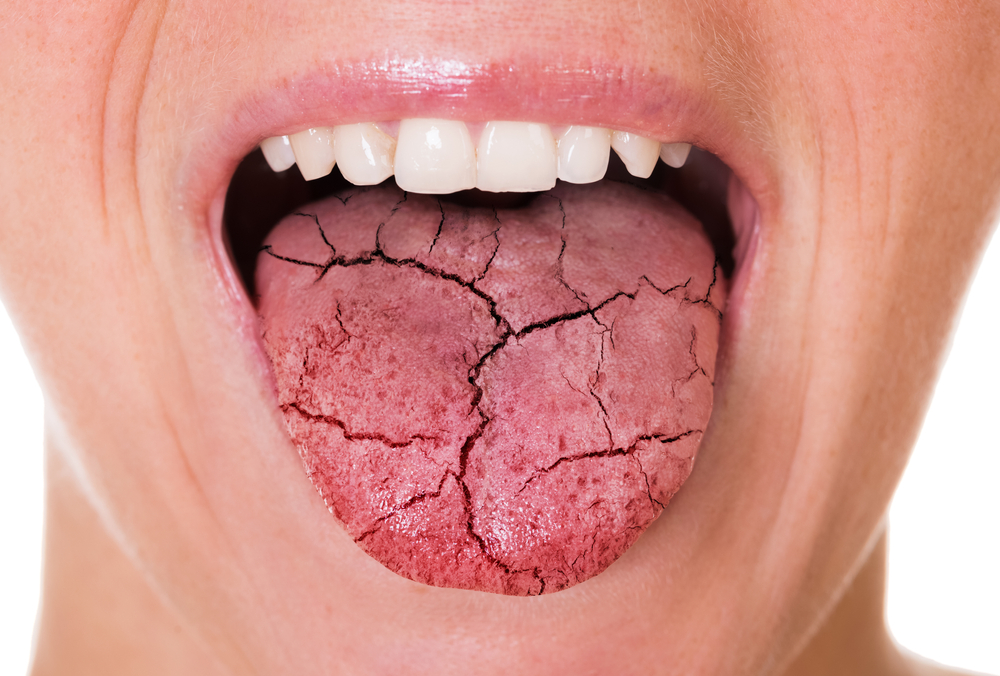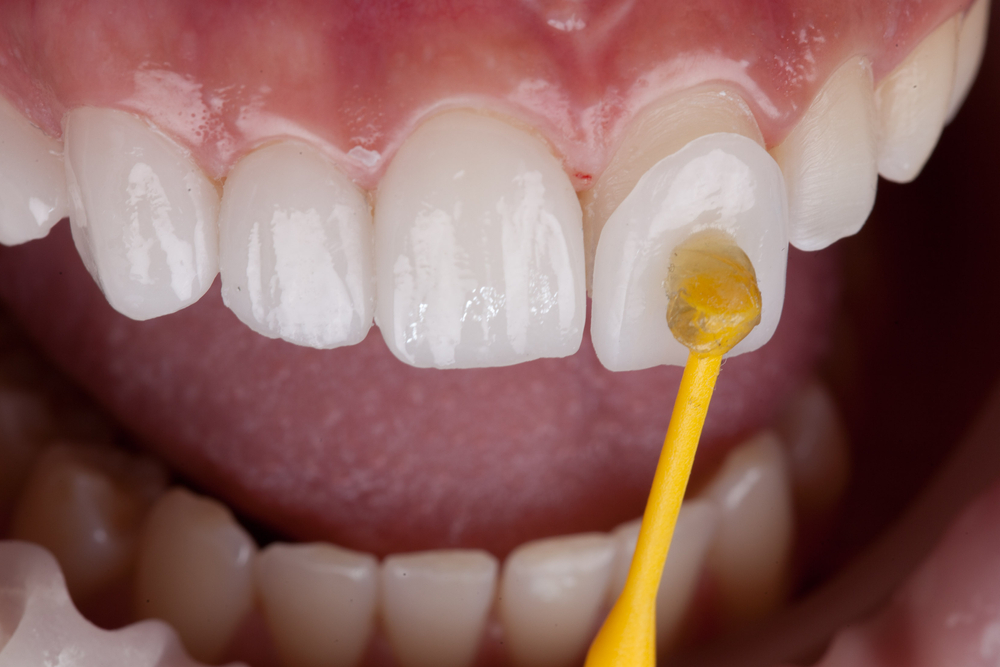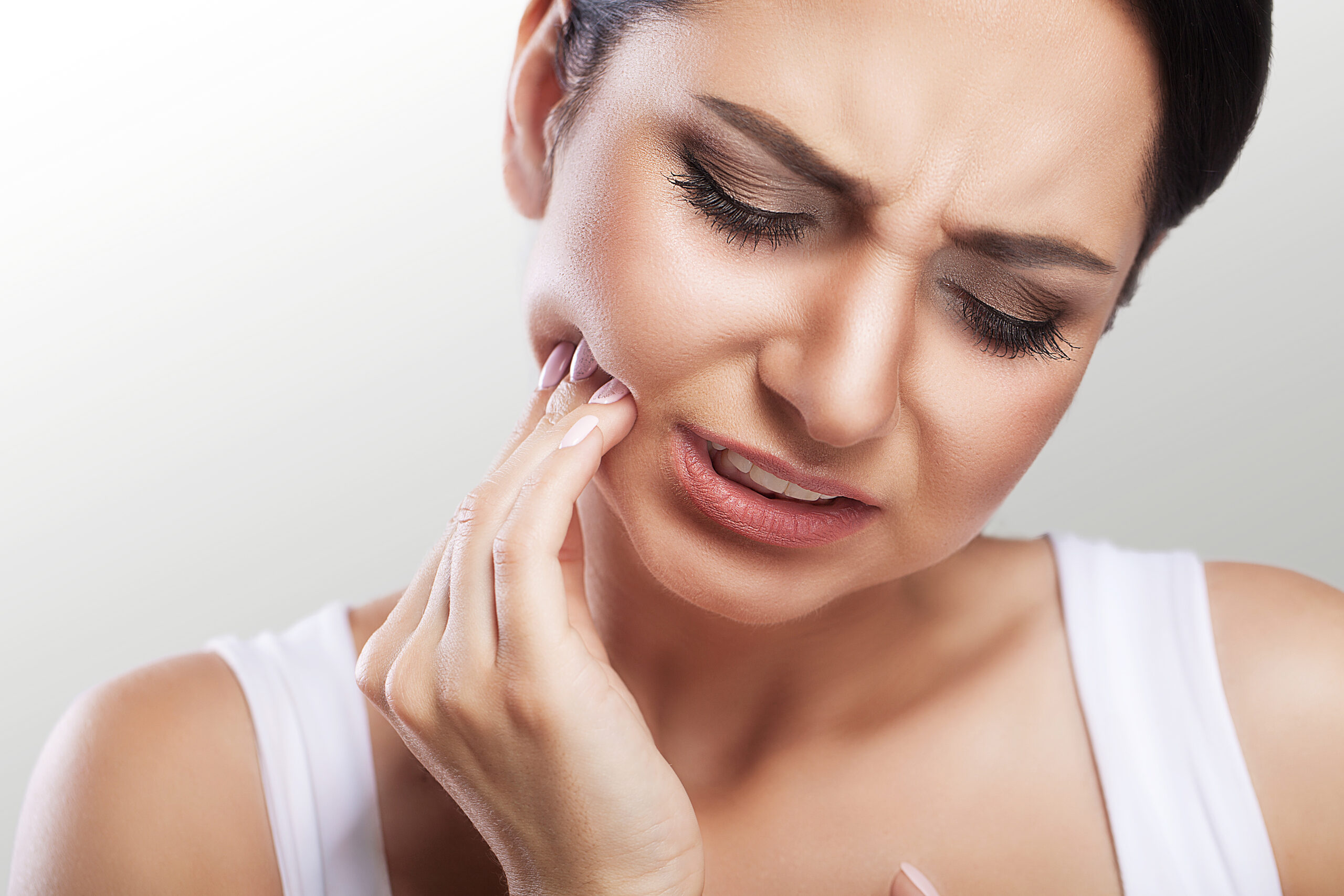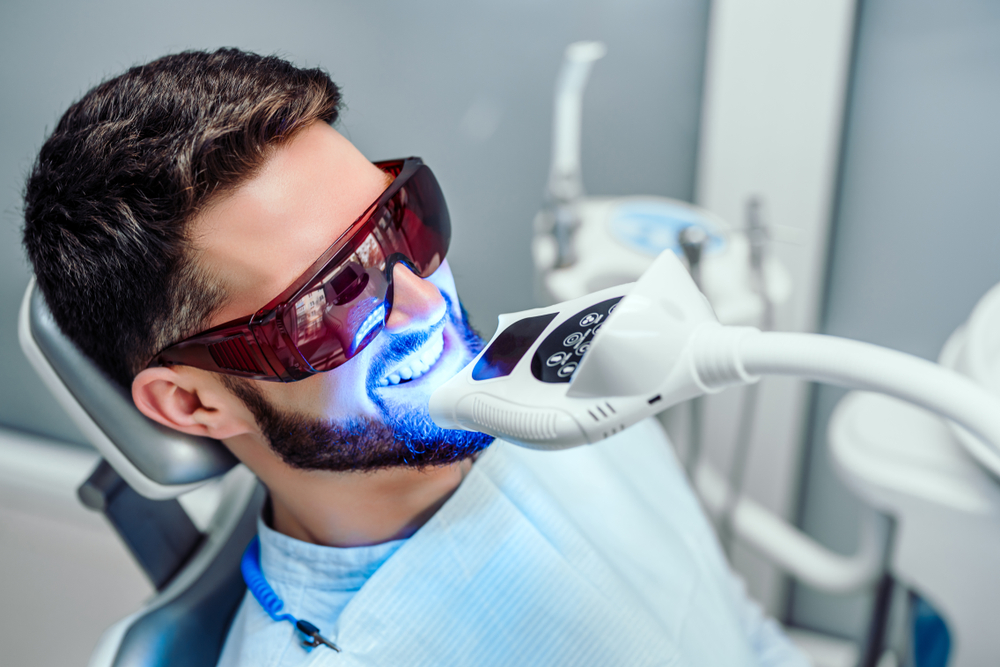Dry mouth, known to dentists as “xerostomia,” isn’t just the occasional feeling of thirst. It’s a consistent lack of saliva that can make your mouth feel sticky and uncomfortable. Ever tried speaking, eating, or swallowing without enough moisture? It’s not only uncomfortable but can lead to other dental issues.
Why saliva is vital for dental health
Now, you might wonder, “Why is saliva such a big deal?” Think of saliva as your mouth’s unsung hero. It plays a big role in breaking down food, which helps with digestion. But that’s not all! Saliva washes away food particles, reducing the risk of cavities. Plus, it contains proteins and minerals that shield tooth enamel and battle against tooth decay. No wonder our mouth feels so off when it’s too dry! Without enough saliva, the risk for oral health problems like gum disease and tooth decay increases. So, it’s not just about comfort; it’s about keeping that winning smile healthy too!
Unpacking the Causes: Why Does Dry Mouth Happen?
Common causes like medications, age, and diseases
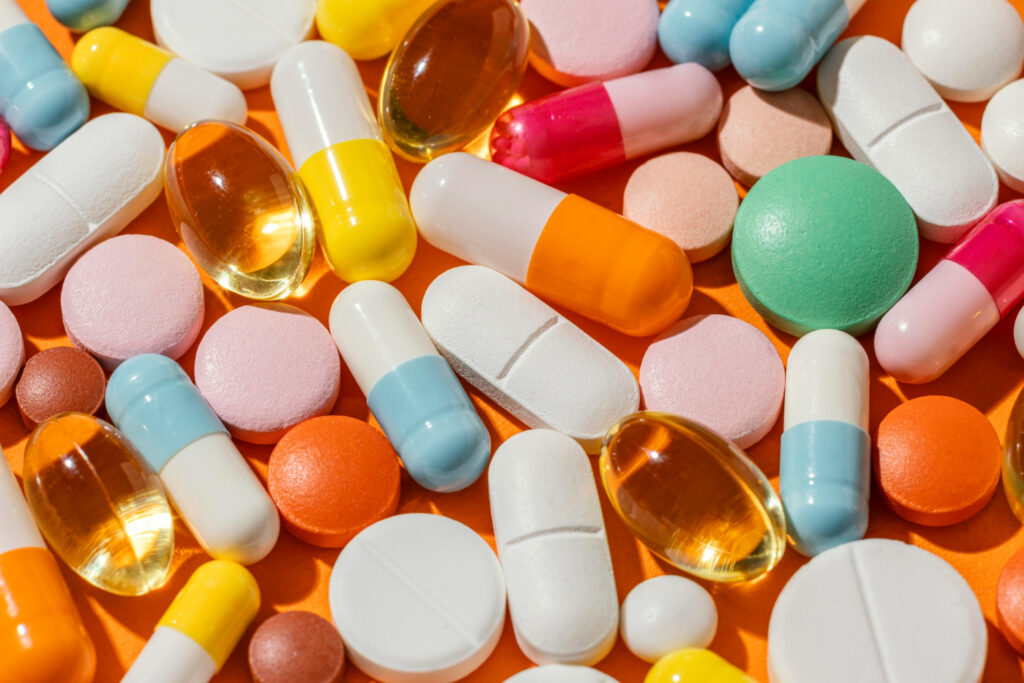
Dry mouth isn’t just a random occurrence. There are reasons behind it. First up: medications. You’d be surprised how many, from antihistamines to high blood pressure meds, list dry mouth as a side effect. As we get older, we might need more medications, and this can amplify the dry mouth situation. Age itself can also be a factor, even without medications. Then there are diseases. Conditions like Sjögren’s syndrome, diabetes, and even some treatments for cancer can reduce saliva production.
Lesser-known causes that might surprise you

Now for the zingers – some causes of dry mouth aren’t so commonly known. Did you know that snoring or breathing with your mouth open, especially during sleep, can dry out your mouth? Or that caffeine can reduce saliva production? Yep, your morning coffee might be giving you that parched feeling. Stress and anxiety, which we all face from time to time, can also play a role. Even certain recreational tobacco and alcohol use can be culprits. It’s a lot to take in, but awareness is the first step in addressing the issue!
Dr. Richard Dawson Weighs In: His Top Tips
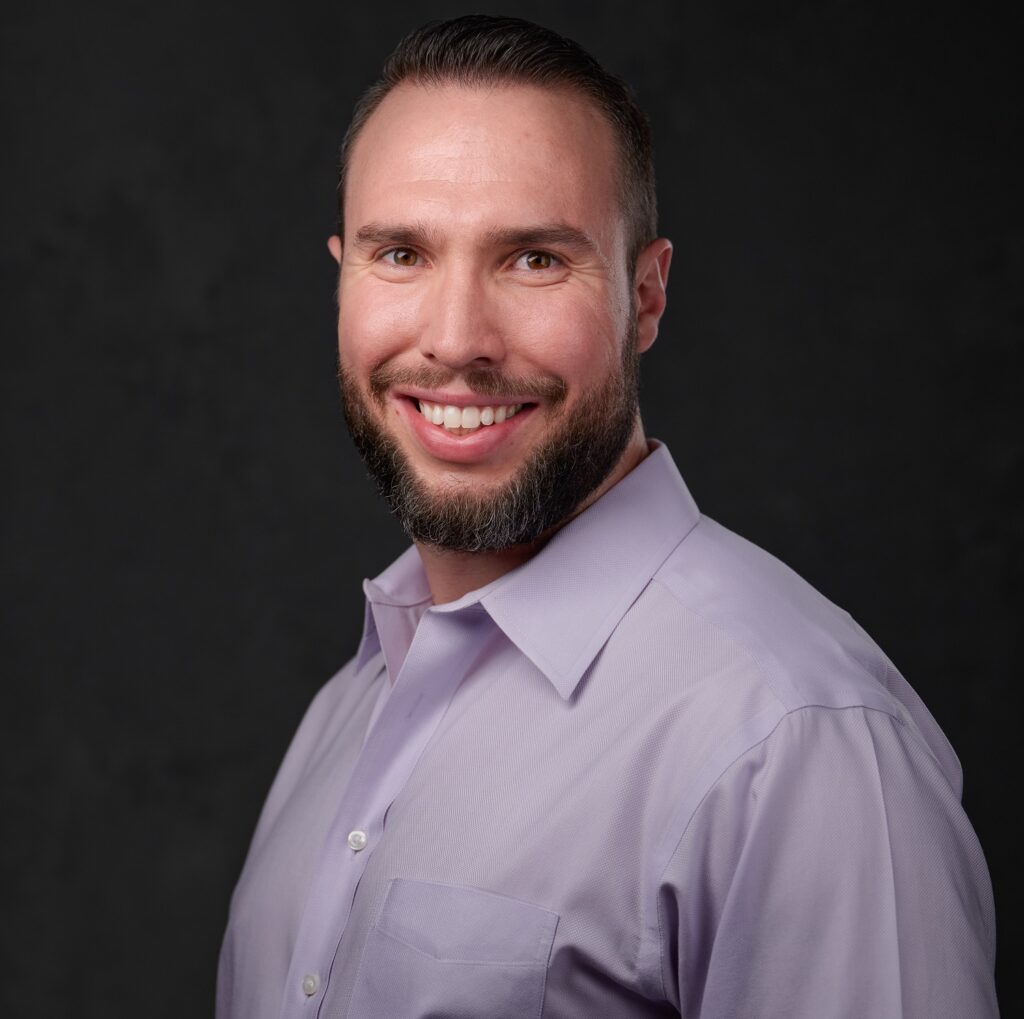
Dr. Dawson’s experience with patients
Having treated countless patients over the years in Glendale, AZ, Dr. Dawson often hears, “It’s just a bit of dryness, is it really that concerning?” Through these interactions, he has emphasized that understanding and addressing the issue early on can save a lot of dental complications later. He’s seen patients go from minor dry mouth symptoms to significant oral health issues due to neglect.
His preferred methods for combating dry mouth
Dr. Dawson is a firm believer in a proactive approach. He often suggests:
- Stay Hydrated: This might sound basic, but sipping water throughout the day can help keep the mouth moist.
- Sugar-free Chewing Gums: They stimulate saliva production. Remember to choose those with xylitol, which can help combat cavities.
- Avoiding Irritants: Cutting back on caffeinated drinks, alcohol, and smoking can significantly reduce dry mouth symptoms.
- Regular Dental Checkups: Early detection of any oral issue is the key. Regular visits can help spot and address problems before they escalate.
Advice from Dr. John Turke: What He Often Recommends

Dr. Turke’s observations and advice
Dr. Turke, having worked alongside Dr. Dawson at Smile Science Dental Spa, brings a complementary perspective to dry mouth. He notices that many patients often overlook the link between their lifestyle and dry mouth symptoms. For him, awareness is the first line of defense.
Suggestions for long-term relief
Dr. Turke often advises:
- Saliva Substitutes: There are over-the-counter oral moisturizers and sprays that mimic natural saliva. They offer temporary relief, especially for those whose dry mouth is a side effect of medication.
- Prescription Treatments: If over-the-counter remedies aren’t sufficient, there are prescribed medications that help increase saliva production.
- Humidify Your Environment: Using a humidifier, especially during dry months or in arid climates like Glendale, can help maintain moisture in the air and alleviate symptoms.
- Dietary Adjustments: Eating more fruits and veggies that have high water content can help. Think cucumbers, watermelon, and strawberries.
- Breathing Techniques: Learn to breathe through the nose. It not only filters the air but also prevents the mouth from drying out.
Both Dr. Dawson and Dr. Turke agree: Listening to your body, especially your mouth, is crucial. A bit of dryness might seem trivial, but it’s your body signaling for attention. And when it comes to health, every signal is worth listening to!
Solutions at Smile Science Dental Spa
The treatments and services offered at the spa for dry mouth
At the forefront of dental innovation, Smile Science Dental Spa in Glendale, AZ offers a gamut of specialized treatments for dry mouth sufferers. This isn’t your typical dental office experience. Think spa ambiance coupled with cutting-edge dental solutions. Here are some of their standout offerings:
- Customized Saliva Stimulation Therapy: Using a unique blend of natural ingredients, this therapy is designed to enhance saliva production gently and effectively.
- Specialized Dry Mouth Oral Rinses: Tailored to individual patient needs, these rinses not only offer immediate relief but can also tackle the root cause of the problem.
- Oral Hydration Treatments: Going beyond simple mouth moisturizers, these treatments deeply hydrate oral tissues to offer prolonged relief.
- Personalized Lifestyle and Nutrition Counselling: Recognizing that dry mouth is often linked to broader health and lifestyle factors, the spa provides consultations to address and mitigate these triggers.
Why Glendale, AZ residents trust their expertise
What sets Smile Science Dental Spa apart isn’t just their treatments; it’s their approach. With Dr. Dawson and Dr. Turke at the helm, patients are assured of comprehensive care that merges the best of modern science with a deep understanding of individual needs. Their commitment to continuous learning and adapting to the latest in dental health means that residents of Glendale, AZ don’t just get a treatment; they get a dental partner for life.
Hydration 101: Why Water Is Your Mouth’s Best Friend
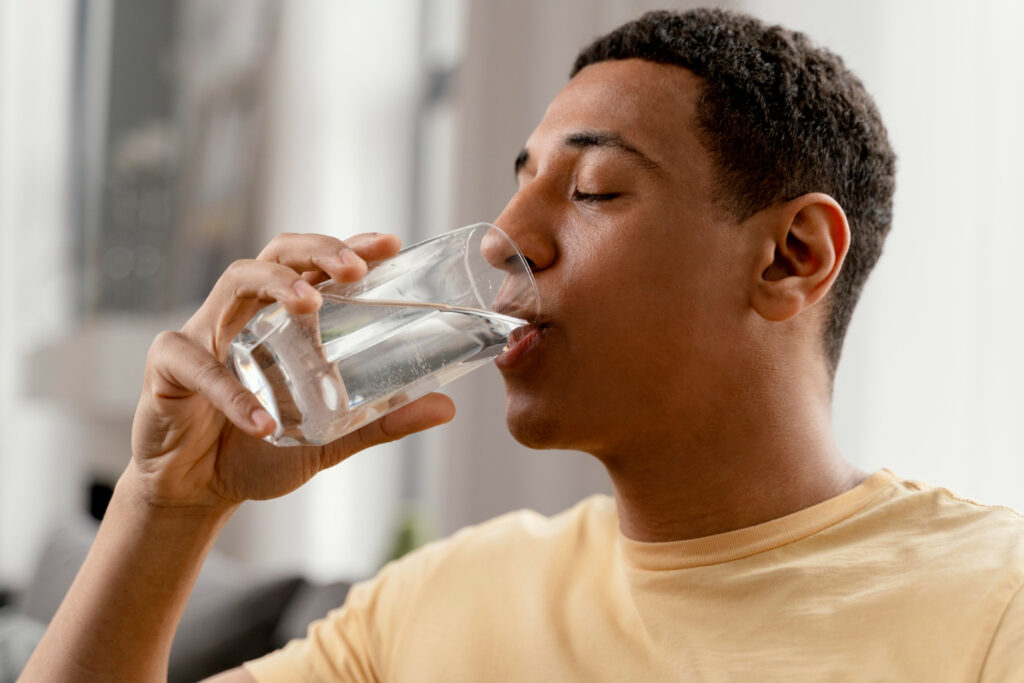
The role of water in oral health.
Water isn’t just essential for our bodies; it’s a savior for our mouths. Every time we drink water, we’re aiding in the natural process of cleaning our mouths. It helps wash away food residues, dilutes acids produced by bacteria, and provides hydration to oral tissues. Furthermore, many public water supplies are fortified with fluoride, which helps strengthen tooth enamel and fend off decay.
How to make sure you’re drinking enough.
Here are some pro-tips to ensure you’re well-hydrated:
- Keep a Water Bottle Handy: Invest in a refillable bottle, keep it by your side, and sip throughout the day.
- Set Reminders: Whether it’s an app on your phone or sticky notes, sometimes we all need a little nudge.
- Infuse It: If plain water gets boring, add slices of fruits like lemon or cucumber for a refreshing twist.
- Monitor Your Intake: Track your daily consumption. While the “8×8” rule (eight 8-ounce glasses daily) is popular, individual needs can vary, so adjust as per your body’s signals.
- Eat Water-rich Foods: Fruits and veggies with high water content can also contribute to hydration. It’s a tasty bonus!
Hydration isn’t just about quenching thirst; it’s about ensuring every part of our body, including our mouths, function at their best. So, the next time you reach for that glass of water, know that your mouth is thanking you!
Over-the-Counter vs. Prescription: Which is Right for You?
Understanding common dry mouth treatments.
When it comes to treating dry mouth, there are generally two avenues: over-the-counter (OTC) treatments and prescription solutions.
- Over-the-Counter Treatments: These are readily available in most drugstores and can include oral rinses, moisturizing gels, and sprays. They’re designed to provide immediate relief from dry mouth symptoms.
- Prescription Treatments: For those with severe or chronic dry mouth, a dentist or doctor might prescribe treatments that either alleviate symptoms or address underlying causes. This could include drugs like pilocarpine or cevimeline, which stimulate saliva production.
The pros and cons of each:
- Over-the-Counter Pros:
- Easily accessible.Immediate relief.Variety of options to suit individual preferences.
- Cons:
- Temporary solution.
- Might not be effective for severe cases.
- Repeated use can be expensive over time.
- Prescription Pros:
- Tailored to individual needs.Can address the root cause.Often more effective for chronic cases.
- Cons:
- Requires a doctor’s recommendation.
- Possible side effects.
- Can be more expensive, depending on insurance coverage.
Prevention Over Cure: Steps to Avoid Dry Mouth
Daily habits that help prevent dry mouth.
Dry mouth might be common, but there are habits you can adopt to keep it at bay:
- Stay Hydrated: It’s the golden rule! Regularly sip on water throughout the day.
- Limit Caffeine & Alcohol: Both can dry out the mouth, so try reducing your intake.
- Chew Sugar-free Gum: This helps stimulate saliva production.
- Maintain Oral Hygiene: Regular brushing, flossing, and using fluoride mouthwash can help keep your mouth moist.
- Use a Humidifier: Especially in dry climates or seasons, it helps add moisture to the air, benefiting your mouth.
When to consult with a dentist for persistent symptoms.
Experiencing a dry mouth now and then, especially on a hot day or after a coffee binge, might be typical. But if you find the condition persistent, causing discomfort, or affecting your oral health (like increased cavities or gum issues), it’s time to seek professional advice. Remember, your mouth has its way of signaling underlying problems, and prolonged dryness might be its SOS call. Dr. Dawson and Dr. Turke always emphasize the importance of early intervention. So, when in doubt, book that dental appointment. Your future self (and mouth) will thank you!
Further Reading
- Diagnosis and management of xerostomia and hyposalivation
- Diagnosis and treatment of xerostomia (dry mouth)
- Dry Mouth (Mayo Clinic)
- Dry Mouth (Xerostomia) [Cleveland Clinic]
- Xerostomia (Dry Mouth) [ADA]
- Dry Mouth (NIH)
